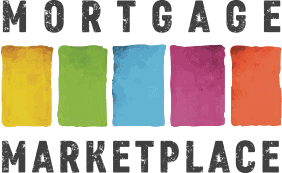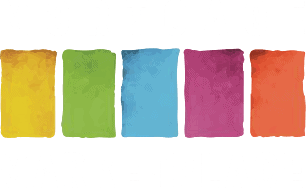Self-Employed Mortgages
- Whole of market mortgage advice
- We'll find the best solution for your personal circumstances
- Access to competitive rates and exclusive products
- Friendly, knowledgeable advisers regulated by the FCA
Get in touch today to discuss your needs and goals.
Read, listen or watch below to learn more.
Home » Self-Employed Mortgages

Self-Employed Mortgage
All about self-employed mortgages with Kevin Spear
Is it hard to get a mortgage if you are self-employed?
The short answer is no, it isn’t. It’s a slightly different process with varying paperwork required, but it isn’t any more complicated or difficult.
Probably half of the mortgages we do at Mortgage Marketplace involve a self-employed person, somebody in a partnership or a limited company director. The reason is that those people tend to be quite busy running their businesses. We’re there to provide a service to make that journey smooth and quick with less interruption.
What if I only have one year’s accounts – can I still get a mortgage?
Yes – there are a number of lenders out there who specialise in self-employed people and company directors. Many of them will deal with businesses with one year’s accounts. That can be quite different because one year’s business to a self-employed person could be longer in reality.
A self-employed person might operate in line with a calendar year, but the tax year runs April to April. A limited company’s books could cover a period of almost two years by the time you’ve produced and signed the accounts. The different sorts of paperwork required from lenders in those scenarios is quite significant, and it’s very different for those two sets of people.
We’re there to walk you through that minefield to make sure that we match your trading records with a lender’s requirements. There are many options out there, so having a year’s accounts ought not be a problem.
Are self-cert mortgages still available?
No. Self-cert mortgages disappeared after the credit crunch in around 2008.
Can you get a joint mortgage if one person is self-employed?
Yes, absolutely. So if one person is salaried and one is self-employed or a company director, it really doesn’t make any difference at all. The salaried person will require payslips and P60s in the normal way. The self-employed person or the limited company director will require the standard paperwork for that space.
Is Buy to Let available for the self-employed?
Again, there’s no difference. So if you’ve listened to our Buy to Let podcast you’ll know that some lenders require a minimum income of £20,000 or £25,000 – and some lenders don’t require a minimum income. They just consider whether, if there was a void in that Buy to Let income, the borrower could cover it.
Those caveats aside, the difference in verifying income is no different. Again, self-employed people will need the usual paperwork in terms of tax documentation to evidence their income for the lender’s Buy to Let criteria.
What’s the difference between someone who is self-employed and a limited company director?
These are quite significantly different. A self-employed person will raise invoices for the work they do. They get paid and put it into their business account, and at the end of the year they’ve got a sum of money. They take their expenses off that and pay tax on the rest. That’s quite a straightforward business model.
The paperwork required for that person to get a mortgage all centres on what they submit to HMRC. It involves tax calculations and a tax overview. Those of us that make tax returns each year get those two documents once we submit our tax return in January. The tax calculation says how much you have earned and how much tax you paid. The tax overview says whether you’ve actually paid that tax or not. Both can be downloaded from HMRC’s website and shown to the lender.
Company directors are slightly different. They will often pay themselves salaries, or a salary plus dividends, or they might leave a share of profits within the company. Lenders will require the same documentation – a tax overview and tax calculation – to see how much salary they’ve had and how many dividends they’ve received from their business.
The only time that differs is where a company director leaves profit in the company. Let’s say the company made £100,000 profit – rather than pay themselves £100,000 in dividends, they might pay themselves half of that and leave half in the business.
Some lenders will use the whole £100,000 in the income calculation. This can be quite significant if you leave a lot of profit or dividends within the business. Our job as brokers is to ask that extra question about whether you leave anything in the business.
In that instance, the documentation required is just a set of the company’s accounts which we can often download from Companies House. We would always verify that on behalf of the applicant. So with a company director we can sometimes be a little bit more generous in terms of what we can use for income.
How much can a self-employed person borrow?
Whether you’re a self-employed person or company director, it’s the same. We end up with an amount of money which represents your taxable income for the year, and then the usual multipliers are applied by lenders. These might be 4 times your income, up to 4.5 or 5 times.
Those multiples will apply exactly the same to the self-employed as they do to employed people. The only difference is how we establish the amount of money to take as your income.
What documents do I need when applying for a self-employed mortgage?
If you’re self-employed, once you do your tax return in January the HMRC portal will allow you to download your tax calculation. It’s a summary of your tax return, stating how much you earned, your personal allowance and how much you were taxed. That’s the document we need. It’s two to four pages downloaded from the portal.
The other document is the tax overview for the same period, which confirms you’ve actually paid that amount of tax.
Those two documents are in most instances all we need for each of the relevant years.
Most lenders want two years’ records, unless as previously discussed, the business is quite young and only has one year’s accounts. Again, the differentiator is a company director who has left significant profits within the business rather than draw it all as dividends. Where we want to use those profits on top of the dividend, we will ask for the set of accounts relevant to that period. Most accounts have two years’ details on them anyway, so it just tends to be the one document.
Where clients aren’t up to date with their tax affairs, that can cause problems because a lender will want the most recent set of submissions.
Is there anything else we need to consider on self-employed mortgages?
The main thing is that self-employment comes in quite a few different guises. Sole traders and partnerships are exactly the same – the individuals within a partnership will get their own tax returns submitted, so they’ll have a tax calculation and overview for their proportion of the partnership income. That’s no problem at all as long as the tax submissions have been made on time.
We often come across something called CIS, the ‘Construction Industry Scheme’, where individuals are paid weekly gross amounts with tax deducted at source. They have both payslips and tax returns, so it’s a little bit of both, but again CIS is an area that we’re experienced in.
The thing that most self-employed people don’t have is time. They’re busy running their businesses, dealing with their clients and managing any issues. Because of our software infrastructure, our ability to download and upload documentation and get decisions quickly, we’re very good at dealing with self-employed people. It’s quick, it’s slick and it doesn’t take up a lot of your time.
Your home may be repossessed if you do not keep up with your mortgage repayments.
Useful Links
- Limited Company Director Mortgage
- Self-Employed Mortgage with One Years Accounts
- Buy to Let Mortgages for Self-Employed
- Documents Needed for a Self-Employed Mortgage
- Joint Mortgages One Applicant Self-Employed
- What Income do Mortgage Companies look at Self-Employed?
- Are Self-Cert Mortgages Still Available?
- Can You Get A Mortgage If You’re Self Employed?
Mortgage Marketplace
- Independent, whole of market advice
- Mortgage agreed in principal within two hours
- Access to competitive mortgage products
- Free Initial Consultation
- We're a Climate Positive Workforce



